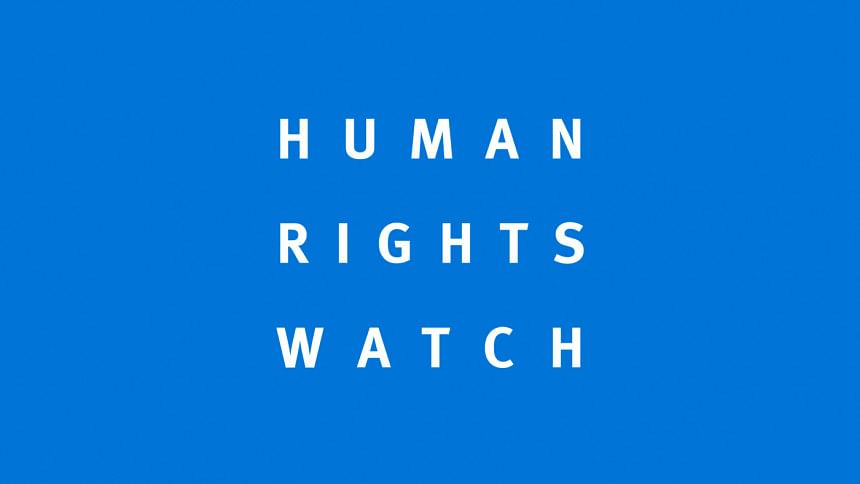Bangladesh should respond to UN concerns on human rights: HRW

Human Rights Watch today urged the Bangladesh government to meaningfully respond to United Nations' concerns regarding grave allegations of torture, enforced disappearance, and extrajudicial killings in the country.
The United States has already sanctioned the country's Rapid Action Battalion (RAB) under the Global Magnitsky Human Rights Accountability Act for serious rights violations and should be excluded from UN peacekeeping deployment, the New York-based human rights organisation demanded in a report published on its website today.
On March 3 this year, the UN Office of the High Commissioner for Human Rights urged Bangladesh government to follow through on its commitment to respond to allegations of torture reported during a 2019 review of its obligations under the Convention against Torture.
That same day, during a meeting with UN Secretary-General António Guterres, Bangladesh Foreign minister AK Abdul Momen reportedly asked him to appoint Bangladeshi nationals to more high-level positions in UN peacekeeping operations, including at the level of the special representative of the secretary-general, the report mentioned.
"The Bangladesh government is seeking greater influence at the UN while simultaneously ignoring the UN's inquiries into human rights violations by Bangladesh security forces," said Brad Adams, Asia director at Human Rights Watch. "Bangladesh authorities are only jeopardizing the country's standing in UN peacekeeping operations by ignoring allegations of abuse and failing to clean up their act."
In July 2019, following its review of Bangladesh's record, the UN Committee against Torture noted that "in general, one got the impression that the police, as well as other law enforcement agencies, were able to operate with impunity and zero accountability."
The rights body recommended that the Bangladesh government "establish an independent vetting procedure, with appropriate UN guidance, for all military and police personnel proposed for deployment in UN peace missions and ensure that no person or unit implicated in the commission of torture, extrajudicial killing, disappearances or other serious human rights violations is selected for service."
However, the government has not demonstrated any efforts to improve vetting, and instead is seeking more senior UN peacekeeping positions for its police and military personnel, HRW claimed.
HRW added, "The government has not responded to repeated requests by the UN Working Group on Enforced or Involuntary Disappearances to visit Bangladesh, first sent on March 12, 2013, and most recently re-issued on April 23, 2020."
According to Bangladeshi human rights groups, nearly 600 people have been forcibly disappeared by security forces since Prime Minister Sheikh Hasina took office in 2009.
While some victims have been released or produced in court after weeks or months of secret detention, others became victims of extrajudicial killings that are falsely claimed to be deaths during gunfights, HRW said.
HRW has documented 86 of these cases in which victims remain missing. The Bangladesh government has repeatedly denied that security forces routinely commit enforced disappearances.

 For all latest news, follow The Daily Star's Google News channel.
For all latest news, follow The Daily Star's Google News channel. 




Comments